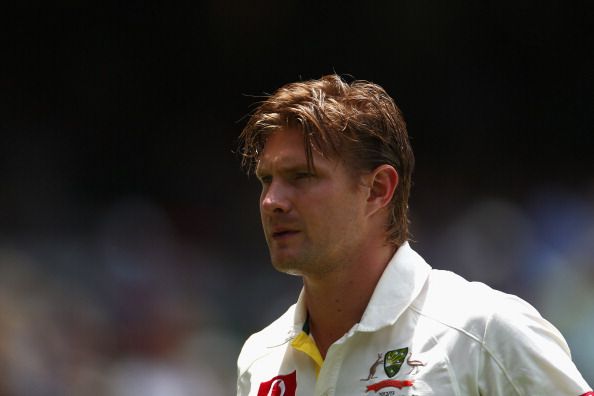
Shane Watson: Looking for a fresh guard in the Ashes

Shane Watson – looking for redemption
There was a lot of anticipation when Shane Watson made his Test debut against Pakistan at Sydney. A hard-hitting batsman and more than handy with the ball, the strongly built all-rounder was Australia’s answer to Andrew Flintoff.
Brought on as the first bowling change, he slipped and fell face-down during the follow through of his opening delivery. He got up with a sheepish smile, brushed himself and resumed to finish a decent over. Later on in the Test match, he scored 31 with the bat before getting the wicket of the ever-dangerous Younis Khan.
In hindsight, that match depicted Watson’s Test career in a nutshell – brimming with potential, occasional flashes of magic but remembered largely for the ‘falls’ he has had.
Based on his performance, his Test career can be broadly divided into three categories

Quite clearly, he has had a golden period sandwiched between two ordinary ones. But what these numbers don’t tell is the numerous times injuries have threatened to stall his career. In the initial three years of his career, he had more breakdowns than Test matches to his credit. A dislocated shoulder one day, a strain on his hamstring the other, a pulled muscle in the calf, stress fractures on his back – there was a time he seemed done and dusted as far as international cricket was concerned.
After a man of the series performance in the inaugural edition of IPL, he forced his way back into the one-day team as an opening batsman; but doubts still persisted about whether his fragile body will be able to handle the demanding hardships of Test cricket.
The turning point came during the 2009 Ashes series when he was drafted into the playing eleven as an opener in the third Test at Edgbaston in place of an under-performing Phillip Hughes; and he responded with three successive half-centuries. Although they lost the series, Watson’s consistent run was one of the few positives for the Aussies. What followed in the next two seasons was the best period the all-rounder has had in his sporadic Test career.
Batting at the top of the order, more often than not, he laid very good platforms for Australia. Although he didn’t score as many match-defining centuries as Matthew Hayden or Justin Langer – he has just two of them – Watson still managed to rake up decent scores consistently, scoring 14 half centuries in 18 Tests. Albeit a touch slower, he improved with the ball as well and became a vital cog in the Australian Test setup.